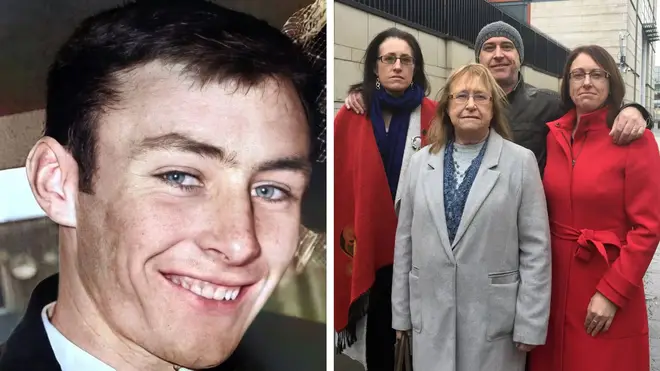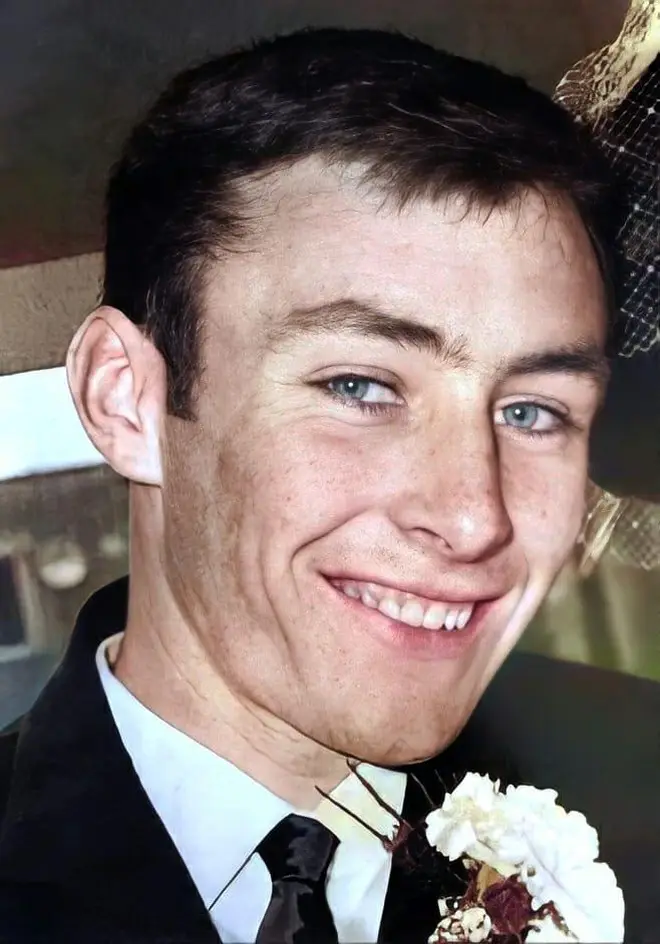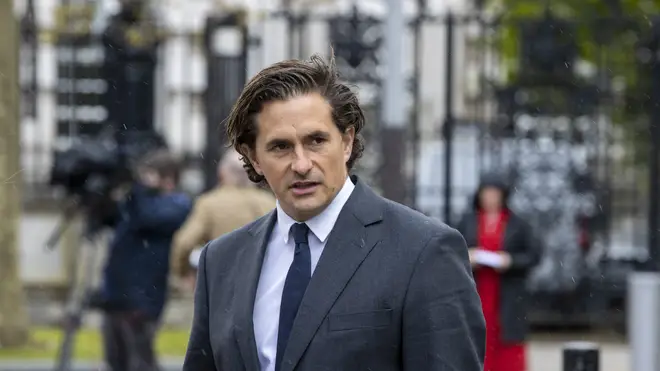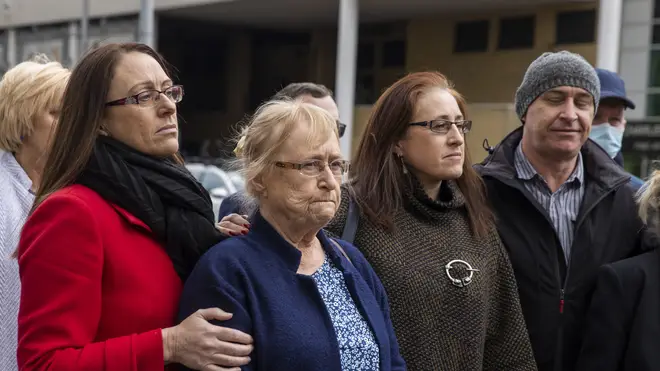
Clive Bull 1am - 4am
5 May 2021, 00:08

Two former paratroopers accused of the murder of an Official IRA leader have been formally acquitted after prosecutors offered no further evidence at their trial.
The veterans' trial at Belfast Crown Court collapsed after the Public Prosecution Service confirmed it would not appeal against a decision by Mr Justice O'Hara to exclude statements given by the ex-soldiers about the shooting of Joe McCann in 1972.
It was the first trial in several years that involved charges against former military personnel who served in the Northern Ireland conflict.
Decisions to prosecute have been taken in four other cases involving veterans, while decisions are pending in three others.
The PPS has defended its decision to take the prosecution against soldiers A and C, but has said it will assess whether the judge's ruling will have an impact on the other military cases before the courts.

Mr McCann, 24, was shot dead by paratroopers as he attempted to evade arrest by a plain clothed police officer in the Markets Area of Belfast in April 1972.
The trial opened last Monday and heard a full day of evidence.
It then moved into a separate voir dire hearing to determine whether statements and interviews given by the ex-soldiers, who are now in their 70s, would be admissible as evidence.
On Friday, Mr Justice O'Hara ruled that the soldiers' evidence could not be admitted.
With the PPS having conceded the material was the only evidence before the court that could be used to prove the soldiers fired at Mr McCann, its decision not to appeal against the judge's ruling means the case could not proceed.
After the prosecution confirmed it would be presenting no further evidence in the case, judge Mr Justice O'Hara told the defendants: "In the circumstances Mr A and C I formally find you not guilty of the charge of murder."

Johnny Mercer reacts to two former paratroopers being acquitted
Moments later the two accused, dressed in suits and ties, walked from the court.
After Tuesday's short hearing, lawyers for the soldiers demanded an "urgent independent review" of the PPS's handling of the case.
Philip Barden, the senior partner at Devonshires solicitors who represented soldiers A and C, said the firm made legal submissions back in 2016 making clear that the evidence from their clients would not be admissible.
"The stress of these proceedings on the soldiers and their families cannot be underestimated," he said.
"This is a prosecution that should never have got off the ground. Before initiating the prosecution, the PPS had all the relevant information to conclude that the evidence was clearly inadmissible. Despite this, the prosecution proceeded."
He added: "I call for an inquiry by a senior judge to investigate the decision-making process and to ensure that the decision to prosecute these veterans was not political."

The family of Mr McCann are to apply to the Attorney General to open an inquest into his killing.
Speaking outside the court, solicitor for the family Niall Murphy said: "This ruling does not acquit the State of murder.
"This ruling does not mean that Joe McCann was not murdered by the British Army.
"He was shot in the back whilst unarmed, from a distance of 40 metres, posing no threat. It was easier to arrest him than to murder him."
He added: "Today is not the end of the McCanns' journey for justice.
"They will now apply to the current Attorney General to open the inquest at which Soldiers A and C will be compelled to appear and give evidence and be cross examined."
Mr McCann's daughter Aine said: "The judge was right when he used the word appalling to describe the failure of the State at all levels in relation to the murder of Joe McCann.

"The RUC failed, the criminal justice failed, not only in this case but in the case of many other families."
The voir dire heard that the evidence implicating the defendants, known in court as soldiers A and C, came from two sources.
The first was statements they made to the Royal Military Police in 1972, the second source was statements and interview answers they gave to a police legacy unit, the Historical Enquiries Team (HET), in 2010.
The PPS accepted that the 1972 statements would be inadmissible in isolation.
That was due to a series of deficiencies in how they were taken, including the fact the soldiers were ordered to make them, they were not conducted under caution, there was no access to legal representation and the Army policy of not asking soldiers to provide an explanation or rationale for their actions.
However, prosecutors argued that the information in the 1972 statements became admissible because they were adopted and accepted by the defendants during their engagement with the HET in March 2010.
In his ruling last Friday, Mr Justice O'Hara agreed with the defence contention that none of the evidence should be admitted to the trial.
He said it was not legitimate to put the 1972 evidence before the court "dressed up and freshened up with a new 2010 cover".
The judge questioned why the re-examination of the case by the HET did not prompt a fresh investigation by the Police Service of Northern Ireland, with the veterans interviewed under caution for the specific offence of murder.
He suggested that course of action might have made a prosecution more sustainable.
The prosecution was taken after Northern Ireland's Attorney General referred the case to the Director of Public Prosecutions in 2014 after receiving the findings of the HET report.
Former defence minister Johnny Mercer has called on the Government to include veterans who served in Northern Ireland in a new Bill to protect soldiers from prosecutions.
Mr Mercer left the Government in April after it emerged the Overseas Operations Bill would not include soldiers who served in Northern Ireland.
Speaking after the verdict, he said: "I'm delighted for the soldiers who can now hopefully go and live the rest of their lives in peace.
"But the Government has made very clear promises, and the Prime Minister has made very clear promises, on legislation to end the relentless pursuit of those who served their country in Northern Ireland.
"It is time to deliver on that."
Deputy Director of Public Prosecutions at the PPS Michael Agnew said the decision to prosecute was taken after a "very thorough and careful examination".
"Despite today's outcome, the PPS remains satisfied that this case was properly brought before the courts," he said.
Mr Agnew added: "When the full written judgment becomes available, the PPS will carefully consider whether it has the potential to impact upon any other cases that are currently before the courts."